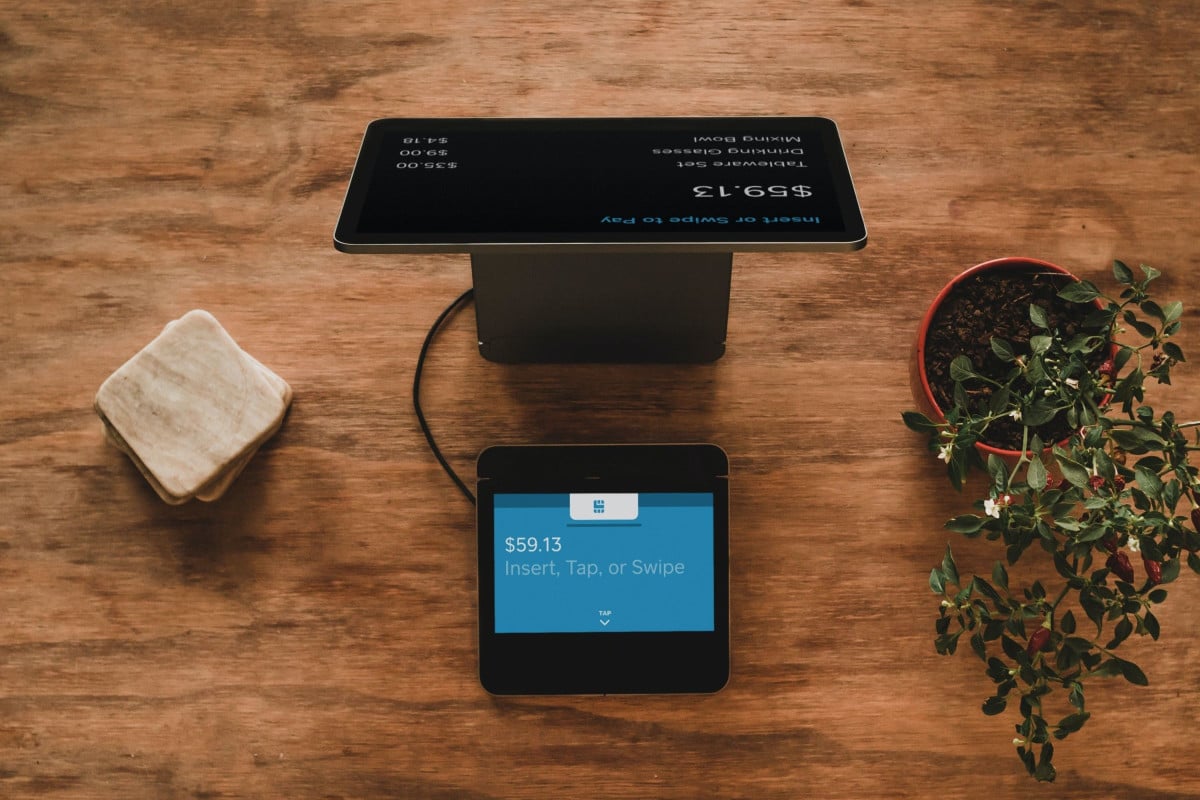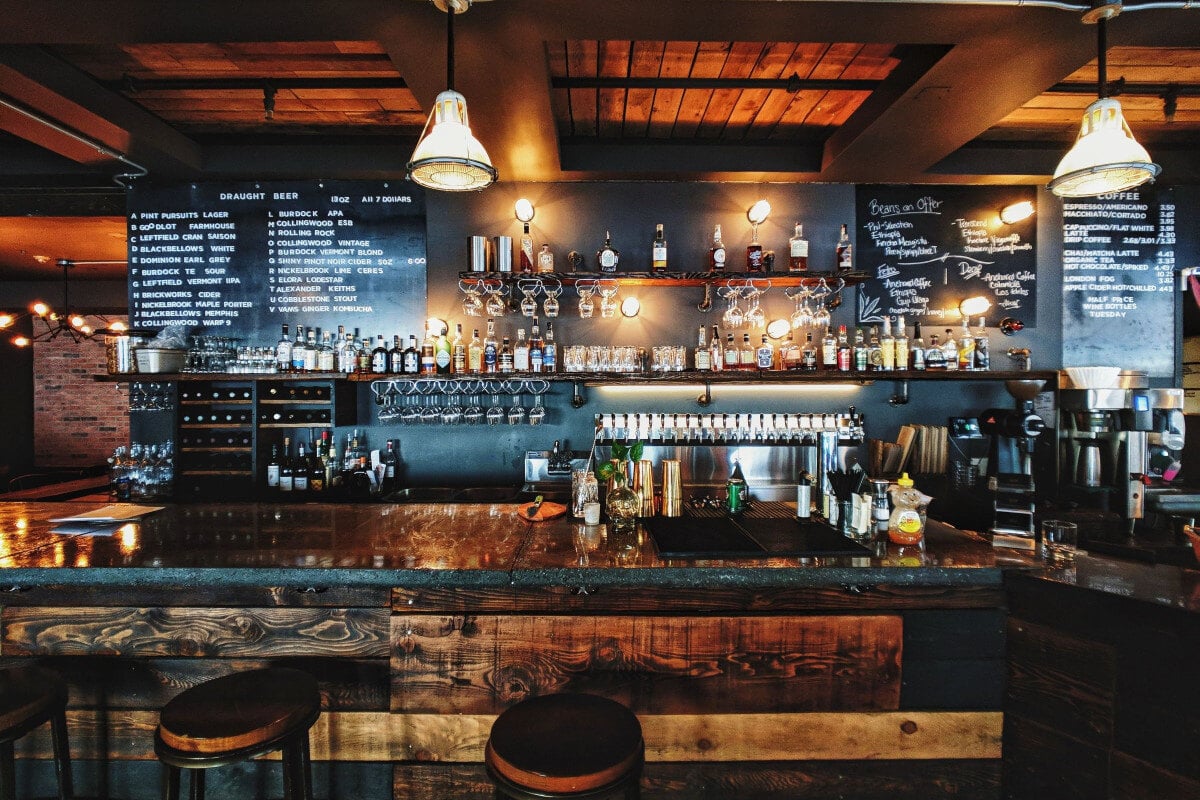20 min read
7 Loyalty Program Platform Tools CEOs Can Use Now
Modern restaurant loyalty solutions focus on bringing guests back, strengthening long-term relationships, and providing a direct line for sharing...
Platform
What is Paytronix Guest Engagement Suite?
Combining online ordering, loyalty, omnichannel messaging, AI insights, and payments in one suite. Paytronix delivers relevant, personal experiences, at scale, that help improve your entire digital marketing funnel by creating amazing frictionless experiences.
A Complete Guest Engagement Suite
Online Ordering
Acquire new customers and capture valuable data with industry leading customization features.
Loyalty
Encourage more visits and higher spend with personalized promotions based on individual activity and preferences.
Catering
Grow your revenue, streamline operations, and expand your audience with a suite of catering tools.
CRM
Build great customer relationships with relevant personal omnichannel campaigns delivered at scale.
Artificial Intelligence
Leverage the most data from the most customer transactions to power 1:1 marketing campaigns and drive revenue.
Payments
Drive brand engagement by providing fast, frictionless guest payments.
Solutions
Paytronix Guest Engagement Solutions
We use data, customer experience expertise, and technology to solve everyday restaurant and convenience store challenges.
FlightPaths are structured Paytronix software onboarding journeys designed to simplify implementation and deliver maximum ROI.
Customer Success Plans (CSPs) are tiered service offerings designed to help you get the most from your Paytronix software, whether you prefer self-guided support or hands-on partnership.
Contactless Experiences
Accommodate your guests' changing preferences by providing safe, efficient service whether dining-in or taking out.
Customer Insights
Collect guest data and analyze behaviors to develop powerful targeted campaigns that produce amazing results.
Marketing Automation
Create and test campaigns across channels and segments to drive loyalty, incremental visits, and additional revenue.
Mobile Experiences
Provide convenient access to your brand, menus and loyalty program to drive retention with a branded or custom app.
Subscriptions
Create a frictionless, fun way to reward your most loyal customers for frequent visits and purchases while normalizing revenues.
Employee Dining
Attract and retain your employees with dollar value or percentage-based incentives and tiered benefits.
Order Experience Builder
Create powerful interactive, and appealing online menus that attract and acquire new customers simply and easily.
Loyalty Programs
High-impact customizable programs that increase spend, visit, and engagement with your brand.
Online Ordering
Maximize first-party digital sales with an exceptional guest experience.
Integrations
Launch your programs with more than 450 existing integrations.
Loyalty Programs
Deliver the same care you do in person with all your digital engagements.
Online Ordering
Drive more first-party orders and make it easy for your crew.
Loyalty Programs
Digital transformations start here - get to know your guests.
Online Ordering
Add a whole new sales channel to grow your business - digital ordering is in your future.
Integrations
We work with your environment - check it out
Tobacco Reporting
Comply with AGDC 2026 DTP Requirements
Company
We are here to help clients build their businesses by delivering amazing experiences for their guests.
Meet The Team
Our exceptional customer engagement innovations are delivered by a team of extraordinary people.
News/Press
A collection of press and media about our innovations, customers, and people.
Events
A schedule of upcoming tradeshows, conferences, and events that we will participate in.
Careers
Support
Paytronix Login
Order & Delivery Login
Resources
Paytronix Resources
Learn how to create great customer experiences with our free eBooks, webinars, articles, case studies, and customer interviews.
FlexPoint Service Catalog
Access FlexPoints are a cost-effective, flexible way to access our value-added services, to ensure you get greater impact from your Access software solution.
See Our Product In Action
E-Books
Learn more about topics important to the restaurant and c-store customer experience.
Reports
See how your brand stacks up against industry benchmarks, analysis, and research.
Blog
Catch up with our team of in-house experts for quick articles to help your business.
Case Studies
Learn how brands have used the Paytronix platform to increase revenue and engage with guests.
Unlock loyalty strategies that 3 out of 4 restaurants use to boost engagement by 40% without adding staff.
7 min read
May 30, 2024

Loyalty programs have become essential for driving revenue, collecting customer data, and creating personalized guest experiences. For restaurants and c-stores facing slim margins and price-sensitive shoppers, a loyalty program provides a reliable path to growth and repeat visits.
In this guide, you’ll learn what is a loyalty program, the main types of loyalty programs, and how to use them to strengthen your marketing strategy, operations, and long-term goals.
Loyalty programs give your business more than repeat visits; they create a framework for understanding and rewarding your customers over time. When implemented thoughtfully, they encourage stronger brand attachment, make promotions more efficient, and turn casual visitors into loyal customers.
A restaurant or c-store loyalty program is a structured system that rewards guests for coming back. It usually includes enrollment, data collection, and reward mechanics, like earning loyalty points or receiving personalized offers. These programs encourage repeat purchases while giving you insight into your customers’ spending habits.
A customer loyalty program focuses on relationships rather than transactions. It gives existing customers a reason to return and feel valued. Over time, this builds customer loyalty and turns casual visitors into loyal customers who prefer your brand.
Different loyalty programs fit different goals. Here are three common types used by restaurants and c-stores.
A brand loyalty program focuses on emotional attachment rather than transactional incentives. These initiatives align your rewards with your mission and values, appealing to guests who identify with your brand story. For example, if your restaurant emphasizes sustainability, reward eco-friendly behaviors such as bringing reusable containers.
This value based loyalty program approach helps build loyalty not just through discounts but through shared purpose, creating customers who support you because they believe in what you stand for.
A coalition loyalty program unites multiple businesses under a single rewards system. For example, a c-store could partner with a nearby coffee shop, allowing customers to earn points at both locations. This approach broadens each business’s reach and creates more opportunities for engagement.
Coalition programs require careful coordination, especially around data sharing and brand alignment. When done well, they boost sales and encourage customer referrals across all participating partners.
A tiered loyalty program motivates guests by rewarding progress over time. Customers move through different membership levels based on their repeat business or spending levels. The higher the tier, the better the perks, such as free products or insider perks.
This model taps into the psychology of achievement and exclusivity. It recognizes regular customers for their loyalty while nudging others to reach the next level. The result is a successful loyalty program that keeps engagement high and competition healthy.
Loyalty programs touch every department, from marketing to finance to operations. Here’s how to build a loyalty program that serves your entire business.
Loyalty programs are powerful tools for driving both new sign-ups and customer retention. They lower acquisition costs by converting first-time visitors into repeat customers; on top of that, they increase customer lifetime value through ongoing engagement.
With the right segmentation, you can use loyalty insights to tailor promotions based on purchase patterns and timing. You can also measure campaign results more accurately using loyalty data.
From a financial standpoint, loyalty initiatives create predictability. Tracking loyalty points and redemptions gives you clearer insights into spending trends and helps you manage reward costs responsibly.
The goal is to reward customers without overextending your margins. Structure your rewards program so that it drives profitable behaviors, like increasing basket size or frequency, while maintaining fiscal balance.
Operational success depends on seamless technology. Integrate your loyalty system with your point of sale (POS) system, customer relationship management (CRM) system, and delivery platforms to centralize customer experiences. The right loyalty platforms also let you automate communication, synchronize reward points, and align in-store and digital offers.
Smooth integration improves service flow, helping staff easily identify loyalty members and deliver rewards without friction.
From a strategic view, loyalty is a defensible asset. It makes your brand harder to replace by competitors and strengthens long-term customer relationships. Over time, a well-structured loyalty program generates steady revenue for your business while rewarding your top fans.
Franchises and multi-unit operators can also use loyalty analytics to identify strong markets, expand customer base potential, and guide investment decisions.
Your customer loyalty program is an untapped goldmine for improving menu performance. With enough customer data, you can connect purchase patterns with profitability and make more informed decisions.
By analyzing customer spends, you can identify high-margin items and use loyalty points or bonuses to promote them. This aligns offers with both guest preferences and profitability goals.
Use rewards programs to fill quiet hours. Offer early access promotions or limited-time deals through your loyalty app to encourage customers to visit when demand dips.
A loyalty program worksheet helps you plan and track program performance. Include columns for goals, audience segments, incentive type, reward value, business cost, and key performance indicators (KPIs). This keeps your reward programs structured, measurable, and aligned with your objectives.
There are many loyalty program benefits beyond just discounts. They increase customer loyalty, improve customer experience, and make decision-making more data-driven. When executed well, they become a cornerstone for brand differentiation and long-term growth.
Loyalty programs help increase basket size and increase sales. For example, offering a free side when a combo meal is purchased promotes repeat purchases and cross-selling opportunities.
Effective programs balance the practical and emotional. Points-based loyalty programs reward behavior, while brand-led experiences build emotional connection. Combining both creates happy customers who stay longer and spend more.
To manage loyalty effectively, you need tools that integrate smoothly with your existing systems. The best solutions simplify campaign creation, automate reward delivery, and give real-time insights into guest behavior.
Choose loyalty platforms that integrate with your POS and support subscription based programs or points programs. Look for real-time analytics, AI-driven targeting, and omnichannel communication.
The best systems offer custom rule settings, predictive analysis, and forecasting tools to evaluate return on investment (ROI) from campaigns and future purchases.
The best way to design your own program is to study customer loyalty program examples that have already proven effective. Each of these five models highlights a different approach to building loyalty and driving repeat business:
Subway’s program uses tiers to motivate frequent purchases. Members unlock better perks as they climb, which creates ongoing engagement and strengthens customer loyalty.
This long-running coalition loyalty program demonstrates how partnerships multiply value. Participants earn miles across different retailers, keeping engagement high across brands.
Starbucks lets members earn points on every purchase and redeem them for free products. This points based loyalty program is simple, intuitive, and drives frequent visits while creating a sense of recognition and reward.
Chili’s rewards members based directly on spending. This straightforward approach appeals to regular customers and encourages higher customer lifetime value.
Little Caesars uses gamified challenges to engage current customers and attract other customers. By offering exclusive products and free merchandise, the program reinforces brand identity and fosters both emotional and behavioral customer loyalty.
Loyalty programs may seem complex, especially when deciding which model fits your business or how to measure success. The following topics address the most common questions restaurant and c-store operators have about loyalty programs.
One of the best examples of a loyalty program is Starbucks Rewards. The coffee giant’s program allows members to earn "Stars" with each purchase, which can be redeemed for free items and perks. Members also enjoy birthday rewards, exclusive offers, and personalized promotions.
Starbucks has designed its program to be engaging and easy to use. Through the Starbucks mobile app, customers can track their progress, order ahead, and receive rewards seamlessly. Starbucks Rewards succeeds by offering rewards matching what customers actually want—like free drinks and food—and by making it easy to access these perks through a user-friendly mobile app.
Loyalty programs come in various types, including:
Here's what each of these means:
The five Rs of loyalty programs are: retention, rewards, relevance, recognition, and revenue. These core elements drive the success of the program:
McDonald's MyMcDonald's Rewards is one of the most successful loyalty programs globally, with over 150 million active users over a rolling 90 day period and over $20 billion in sales from loyalty members. The program is set to continue its rapid growth with a goal of reaching 250 million active users by 2027.
MyMcDonald’s Rewards' success stems from its easy to use points system, where customers earn rewards with every purchase, redeemable for free menu items and exclusive offers. By offering personalized promotions and tangible benefits, MyMcDonald's Rewards has become the go-to for McDonald's customers.
A well-designed loyalty strategy strengthens every part of your business. It supports marketing with better audience segmentation and engagement, gives finance teams clearer forecasting, and streamlines operations through integrated loyalty platforms. More importantly, it deepens customer loyalty and creates emotional connections that keep people coming back.
When you approach loyalty as a core growth engine, not just a marketing add-on, you unlock lasting value across your entire organization. Book a Paytronix demo today to see how our loyalty platform fuels long-term restaurant and c-store growth through smarter insights and personalized engagement.

20 min read
Modern restaurant loyalty solutions focus on bringing guests back, strengthening long-term relationships, and providing a direct line for sharing...

21 min read
Imagine you're dining at your favorite restaurant. The food is always delectable, and the ambiance is just right. The server hands you a card as you...

6 min read
QDOBA, a long-time Paytronix customer, has a highly successful restaurant loyalty program, and part of that success is realizing the full value of an...